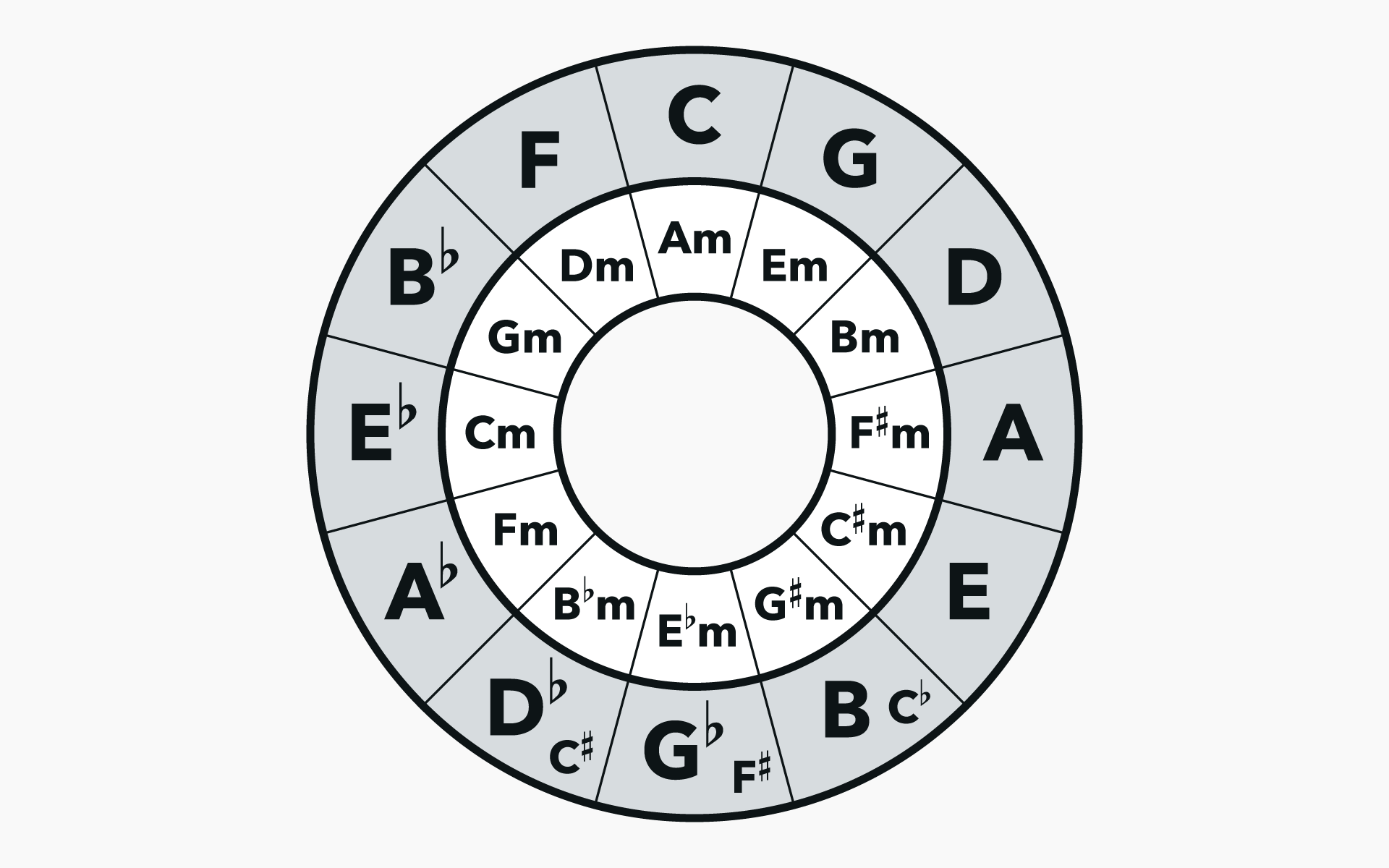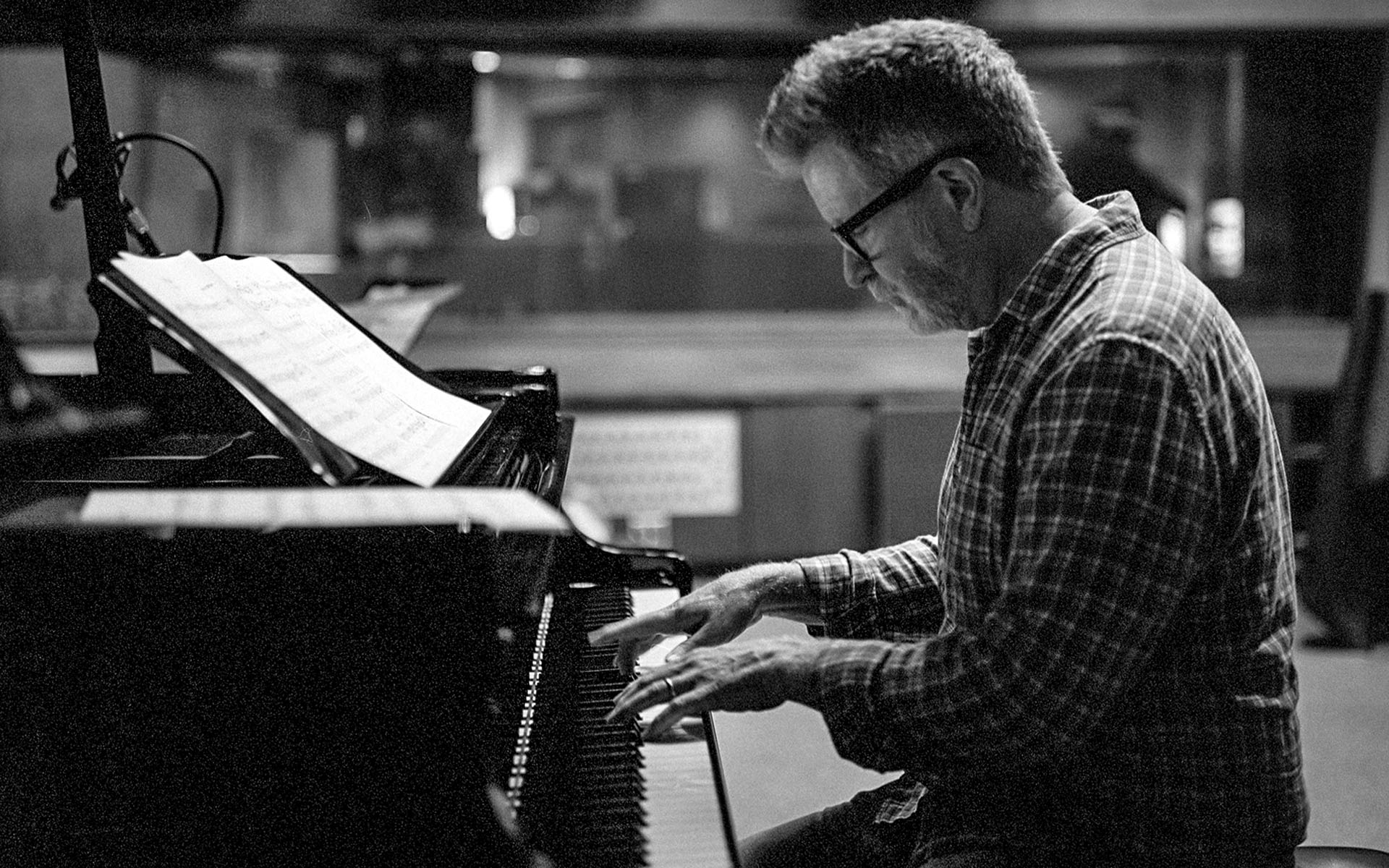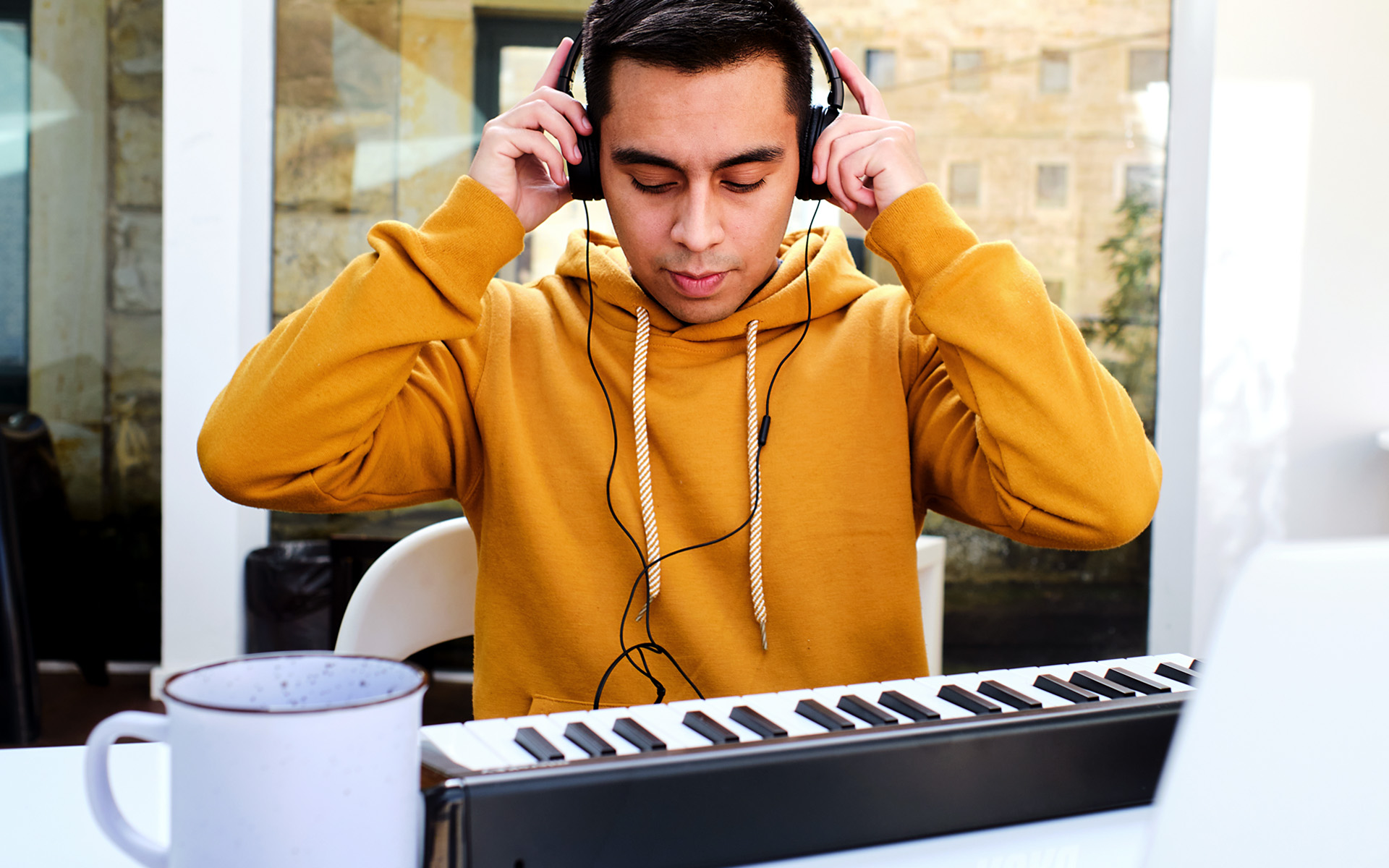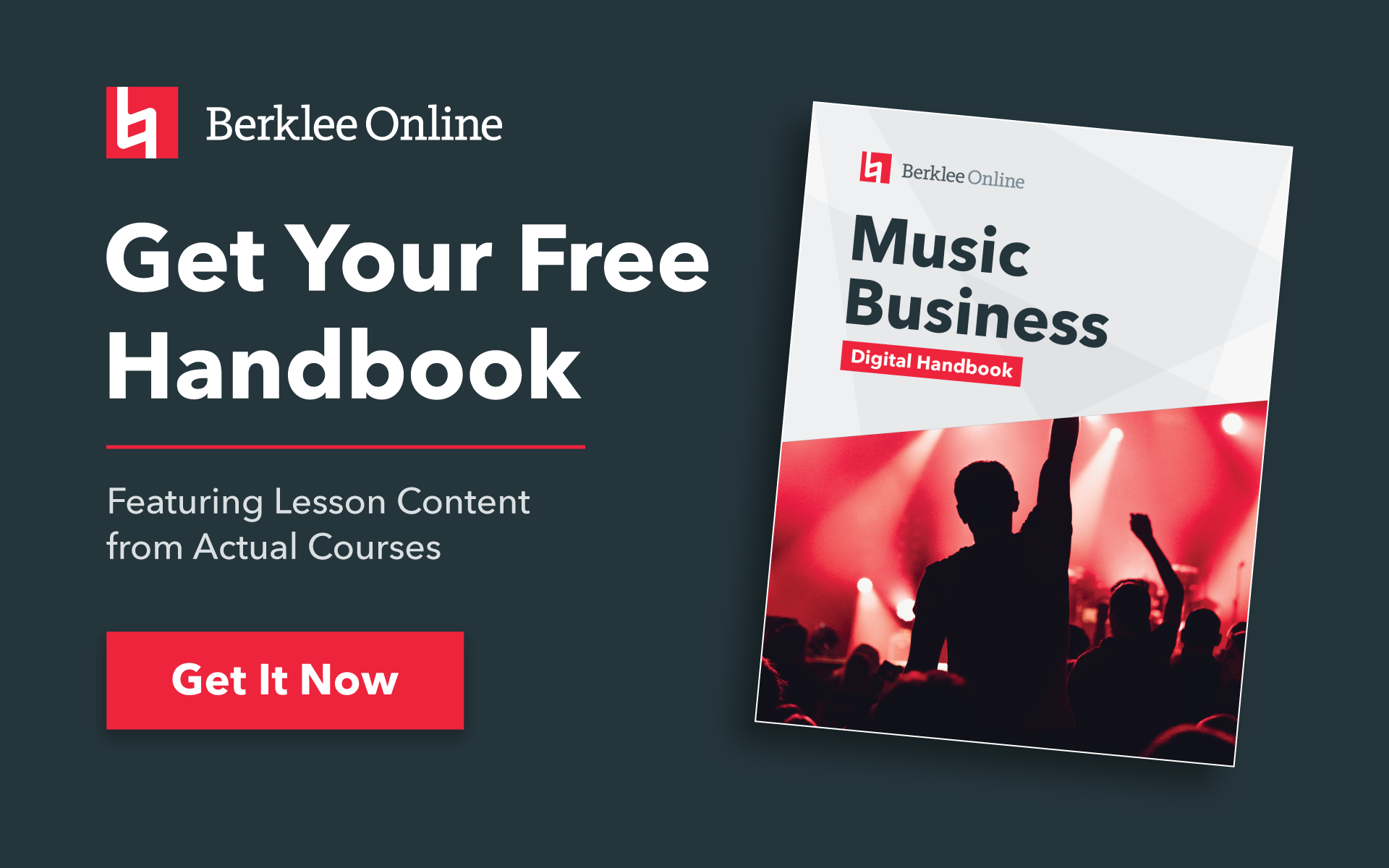Understanding the legal aspects of the music industry, particularly copyright law, is critical for any professional musician. Allen Bargfrede has been teaching music law at Berklee, and beyond, for many years. He is the author of Music Law in the Digital Age: Copyright Essentials for Today’s Music Business, recently published in its second edition. Allen is also the author and instructor of the Berklee Online course Copyright Law. In honor of his book’s new release, Alan answered a few common questions about some of the legal aspects of being a musician.
What is the most commonly used legal form that any artist or music creator should have on hand, ready to customize for a new usage?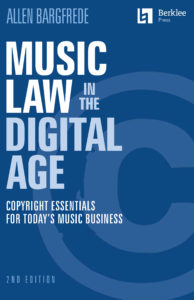
A simple single-song license agreement is the most useful for an artist. Label, publisher, or management agreements don’t always make sense since the other party will have their version, and these are once-every-few-year deals.
When should an artist hire a lawyer, vs. just downloading free forms from the Internet?
Artists should be wary of merely downloading free forms. Often, good information can be gleaned from many, music business books, but they don’t always fit specific situations, and competent counsel should be consulted anytime an artist has a question or may not understand a legal clause.
How about sampling? Is sampling legal? Is it legal if you only sample less than four seconds of someone else’s track?
There is no bright-line test for sampling. It depends on the specific situation. Always consult an attorney before using someone else’s work.

Are songwriters making significant money—say, more than $1,000 annually—on streaming royalties, or is it really just a game for larger corporations with a great number of copyrights, and maybe a superstar at the highest level?
This just depends on the level of songwriter. The democratization of the internet has meant so much more content can get distributed, and unfortunately, there isn’t an audience for it. I know plenty of songwriters who make decent to good money on streaming services.
As far as copyright goes, is it sufficient to just mail copies of your songs or lead sheets to yourself, or should songwriters and composers actually register their copyrights formally?
I always advocate for registration, but ultimately, a court is looking for evidence of creation.
If you’ve written a lot of music and never registered a copyright before, can you do it all in a big batch or does it have to be one at a time?
This depends on whether it is all on a single album and if the co-writers are the same.
Why is it important for artists to understand the legal aspects of the music industry?
In general, artists need to have a basic understanding of how the industry works, and the many different sources from which they might be entitled royalty payment.
[bctt tweet=”Why is it important for artists to understand the legal aspects of the music industry?” username=”berkleeonline”]
Do intellectual property laws vary significantly state by state, or country by country?
Federal law governs copyright. While there is some uniformity around the world due to various treaties, ultimately each country makes its own law.
If you are touring internationally, what legal issues should you keep in mind?
Artists who tour internationally always forget about getting a visa and paying international taxes.
What ways are there for a beginning-level independent artist to get affordable legal assistance?
Many cities and universities have legal clinics with lawyers who will donate their time. I’ve worked with some of them, and I highly recommend them.


